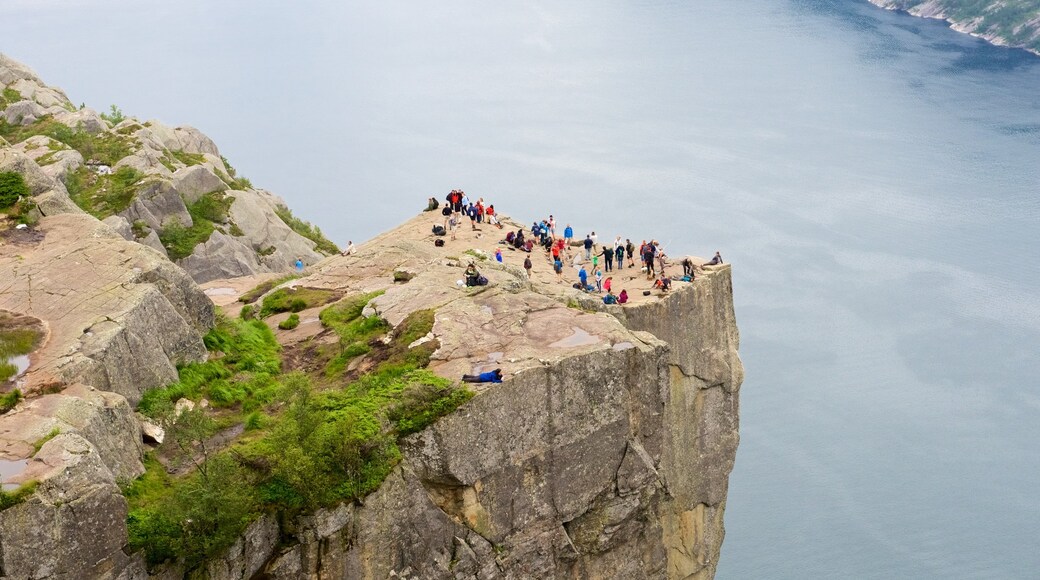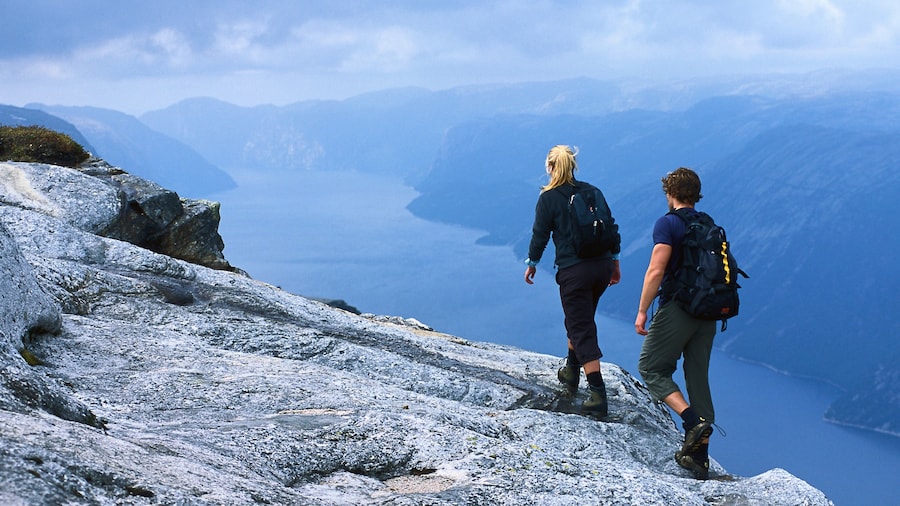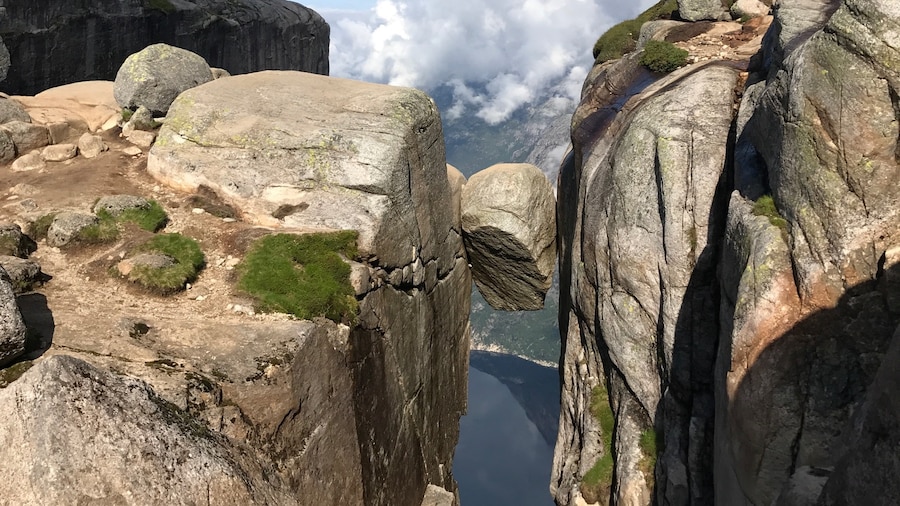Experience the otherworldly splendor of the Lysefjord as you hike to this peculiar viewing platform, photographing sheer cliffs and stunning vistas along the way.
Savor the natural beauty of jagged outcrops, sheer cliffs and calm waters at Preikestolen, a Norwegian natural landmark. Also known as Pulpit Rock or Preacher’s Rock, this angular viewing plateau is perched high above the spectacular Lysefjord, one of Norway’s most famous fjords. Come to inspect its curious shape, photograph the majestic scenery and enjoy a hike in the fresh Scandinavian air.
The Lysefjord is a sheer 26-mile (42-kilometer) canyon in the granite-based countryside of the Rogaland. It was formed during the last ice age when a glacier carved away the edges of the valley, leaving behind nearly vertical cliffs and curious angular rock formations, including Preikestolen.
Hike to Preikestolen via a steep trail winding through the barren rocky outcrops. This nearly 2.5-mile (4-kilometer) path starts from the parking lot at Preikestolen Fjellstue and rises around 1,150 feet (350 meters) in elevation. Bring sturdy shoes, warm clothing, wet weather gear and food and water for the walk.
Once at the Preikestolen plateau, admire sweeping views of the cliffs opposite and the tranquil water, quietly moving almost 1,982 feet (604 meters) below. The natural viewing platform sits atop a remarkably square granite slab with an area of nearly 82 by 82 feet (25 by 25 meters). Look for the Kjerag, a viewing plateau on the opposite side of the fjord that features a boulder wedged between two sheer cliffs. Note that Preikestolen has no fences in order to avoid spoiling the natural beauty of the landscape.
As you walk back down the trail, stop at one of the swimming and picnic areas to enjoy a break with a scenic view. The roundtrip hike to Preikestolen takes about 3 to 4 hours. For an alternative perspective on the landscape, take the tourist ferry from Lauvvik to Lysebotn, which passes directly beneath Preikestolen.
The parking facility at Preikestolen Fjellstue is a 90-minute drive from Stavanger. Get here by car or bus. Note that hiking is allowed only between April and October, when the weather is agreeable.












